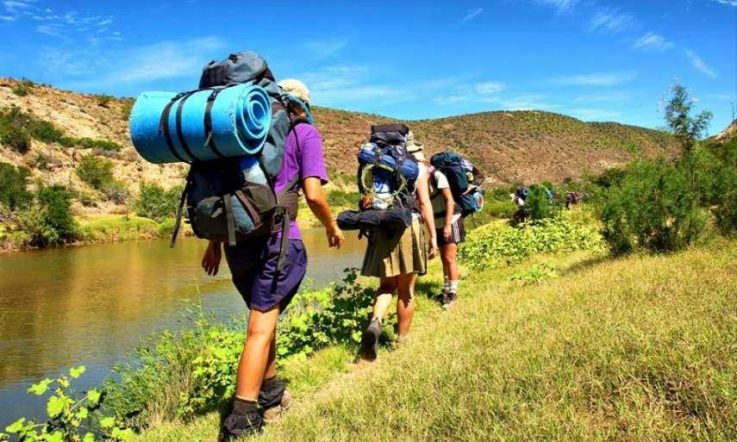Providing professional learning is an important part of supporting teachers during the transition to a new curriculum, and subject associations are a rich source of expertise.
Given the nature of its discipline, it's not surprising that the Australian Geography Teachers Association (AGTA) has been clocking up the kilometres to connect with educators.
By the end of this month, the association will have visited every state and territory for a nationwide roadshow on interpreting and implementing the F-10 Australian Curriculum: Geography. Susan Caldis, Secretary of AGTA and President of the Geography Teachers' Association of New South Wales (GTANSW), says the focus has been on inquiry-based learning and fieldwork, and how those teaching methods can be linked to the new curriculum topics in the primary and secondary years.
‘What AGTA has been doing is spreading the message consistently and nationally about how to do inquiry-based learning and why it's so important for Geography,' she tells Teacher. Resources from the presentations have also been uploaded to its website.
Incorporating fieldwork
Caldis says inquiry-based learning is not new to a lot of teachers, but doing it geographically and incorporating fieldwork may be. 'You can do inquiry without fieldwork, but you shouldn't be doing fieldwork without inquiry, otherwise you don't know why you're out there investigating stuff!
'For [Geography], fieldwork is fundamental. We'd like to think it's always been going on; it's something that's always been recommended as a best practice teaching method, but I think with the introduction of a new and specific curriculum for Geography we've been able to get that message out really loud and clear.
'[Previously] some states and territories may have done their geographical learning within a SOSE (Studies Of Society and Environment) component or something similar, so it became integrated with other subjects, rather than stand alone. So, even though inquiry-based learning is there underpinning all the Humanities, the idea of fieldwork was a little bit new for many teachers.'
On the value of incorporating it into your unit planning, Caldis points to the research of Dr Jeana Kriewaldt from the University of Melbourne, which identifies the features of accomplished geography teaching. 'The common denominator ... was fieldwork.'
Caldis says that in the primary years many teachers are actually already using the method but they're not necessarily labeling it as such. 'Students are investigating, they're doing tallies and they're taking observation notes of what's around them. [They] might be asking people in the community about things, but not always has it been given the label of 'fieldwork' when it's been attached to geographic learning.'
Fieldwork and urban planning
In New South Wales, GTANSW has worked with the Department of Planning and Environment to develop lesson plans for Year 7 and 8 students exploring urban and regional planning. Through an inquiry-based learning approach, students investigate real or hypothetical challenges through fieldwork.
Although they were designed for the NSW syllabus, Caldis says they slot in nicely to Australian Curriculum topics. 'Place and Liveability ... gets the students quite early on having a look at, almost quite specifically, urban planning and the types of decisions that need to occur to ensure that a city or a country town or a suburb is as liveable as it can be. And you can also do that through integrating Water in the World together with Place and Liveability and look at the role that water has in enhancing the liveability of some areas.'
On the professional learning front, GTANSW held its annual conference this year at the Sydney Olympic site and offered delegates the opportunity to go on fieldwork trips relating to urban planning issues - exploring the changing use of the site from its sporting focus in the year 2000, to business development and future residential use.
In the classroom, urban planning is good way to connect students to careers such as architecture, engineering and landscaping, so they can see how their geography learning opens future study and employment pathways.
'[We're] trying to give them ideas about where geography can lead them to as part of a career and urban planning has been a nice revelation for us because there's so many other employment options associated with it,' explains Caldis.
Making lessons relevant and engaging
Caldis, who is taking a year off teaching at school to teach pre-service educators at Macquarie University, says connecting learning to the real world and getting students out of the classroom to carry out their own investigations increases engagement and interest in the subject.
'I've been to a few schools where the kids will say "this is boring ... why do we have to do geography? We always have heaps of fun in History”. [This is] because they're doing ... simulated archaeological digs, investigating, and all that sort of stuff. Well, we can do that in Geography too.
'I think it's just about educating the teachers, because unfortunately there are not many Geography specialist teachers and, for me, that was the clincher to teaching at [university] ... because if we don't have specialist teachers out there in schools, not just in NSW but around Australia, it's just going to be a message that we're having to repeat all the time.'
Do you encourage students to carry out their own inquiries to explore geographical issues?
Take a look at your lesson planning - have you included fieldwork opportunities?
Are you making the link between geography learning and career pathways?



